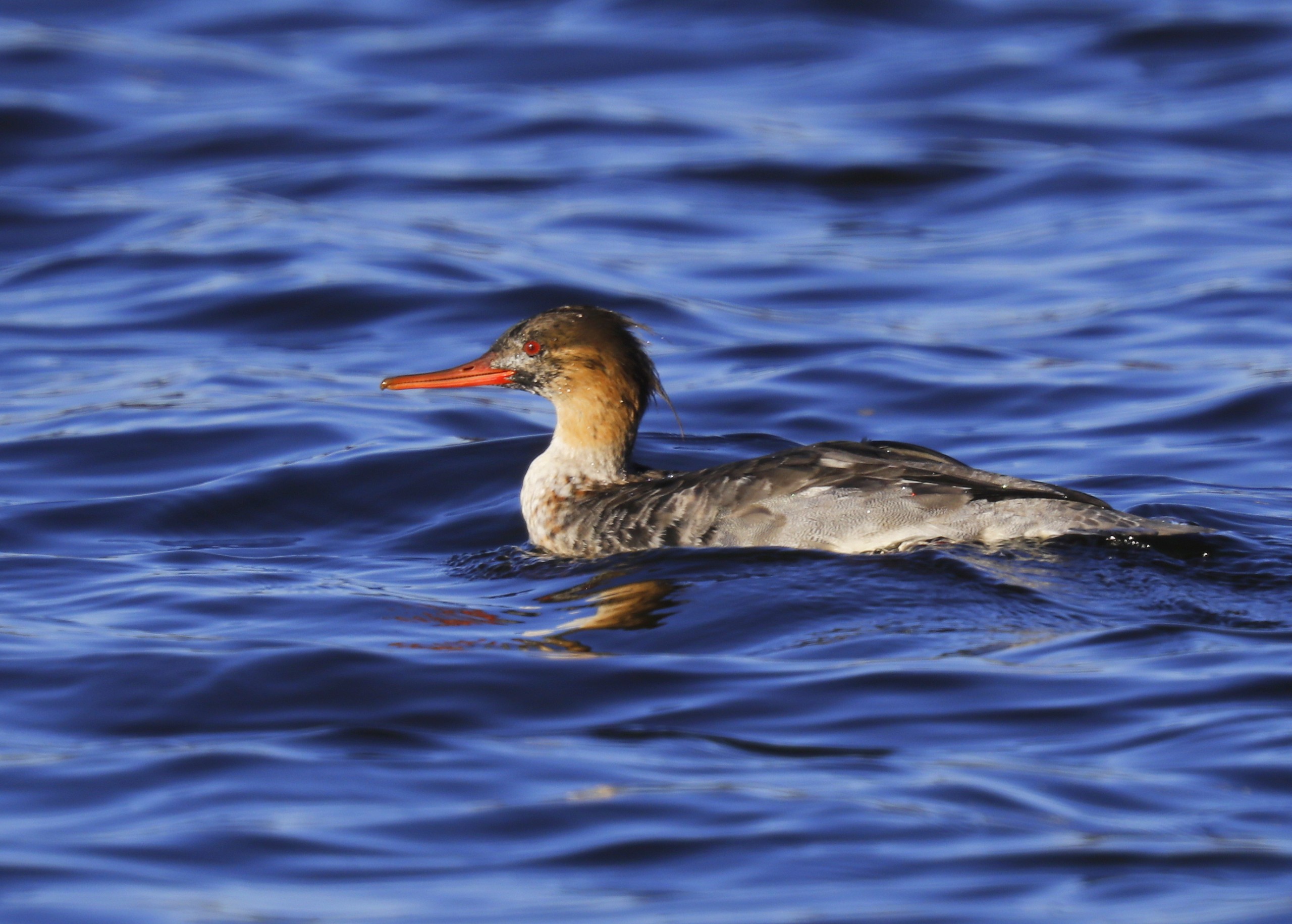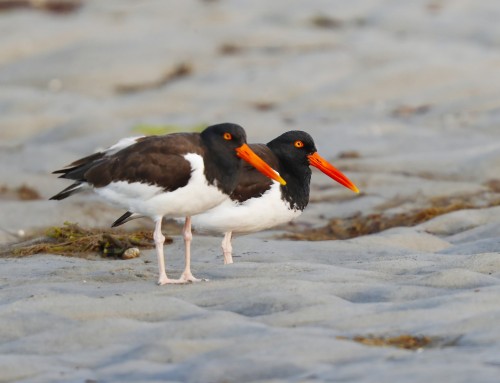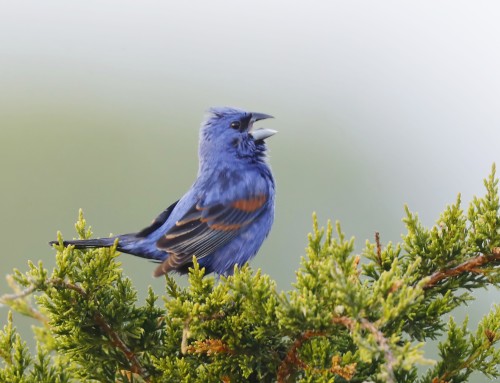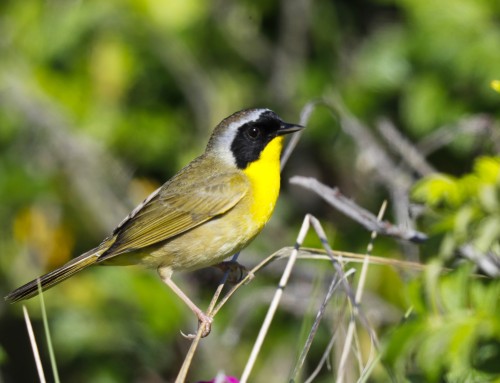Jan. 5, 2024: Red-breasted Mergansers, wintering in Falmouth, favor coastal waters, estuaries, and inlets for abundant fish. Skilled divers, they use serrated bills to secure prey. Often in flocks, they segregate by gender. Migratory, they seek Falmouth’s temperate conditions and varied coastlines for roosting, showcasing subdued winter plumage. They concentrate in ice-free tidal areas, offering birdwatchers a chance to admire their adaptation to the coastal environment. This Merganser was recently seen paddling around Salt Pond.
Red-breasted mergansers (Mergus serrator) are diving ducks that inhabit coastal waters during the winter months, and Cape Cod, with its extensive coastline and rich aquatic environments, is an important wintering area for these birds. Here are some aspects of their wintering habits on Cape Cod:
1. Habitat: Red-breasted mergansers can be found in a variety of habitats during winter, including estuaries, bays, inlets, and coastal waters. They prefer areas with abundant fish and other aquatic prey.
2. Feeding: These ducks are skilled divers and primarily feed on fish, crustaceans, and other aquatic invertebrates. They use their long, serrated bills to grasp and secure their prey underwater. Falmouth’s coastal waters offer a diverse range of food sources, making it an attractive wintering ground for red-breasted mergansers.
3. Social Behavior: Red-breasted mergansers are often observed in flocks during the winter months. They may form tight groups while foraging, providing a level of protection against predators. Males and females may segregate into separate groups during the non-breeding season.
4. Migration Patterns: While some red-breasted mergansers are year-round residents in certain areas, many individuals migrate to more temperate regions during the winter. Falmouth serves as a winter destination for migratory populations seeking milder conditions and access to food-rich coastal waters.
5. Shelter: During winter, these ducks seek sheltered areas to roost and rest. Sheltered coves, marshes, and other protected waters provide them with a secure environment. Falmouth’s varied coastline offers a mix of exposed and sheltered areas suitable for their needs.
6. Winter Plumage: In winter, red-breasted mergansers exhibit a subdued plumage compared to their vibrant breeding colors. Males sport a more muted reddish-brown head and gray body, while females have a grayish-brown appearance. This winter plumage helps them blend into their surroundings.
7. Ice-free Areas: Red-breasted mergansers prefer areas with open water, so during colder periods, they may concentrate in places where the water remains ice-free, such as tidal areas with continuous water movement.
Observing red-breasted mergansers during their winter stay in Falmouth can provide birdwatchers and nature enthusiasts with an opportunity to appreciate the beauty of these diving ducks and their adaptation to the coastal environment.






Leave A Comment
You must be logged in to post a comment.